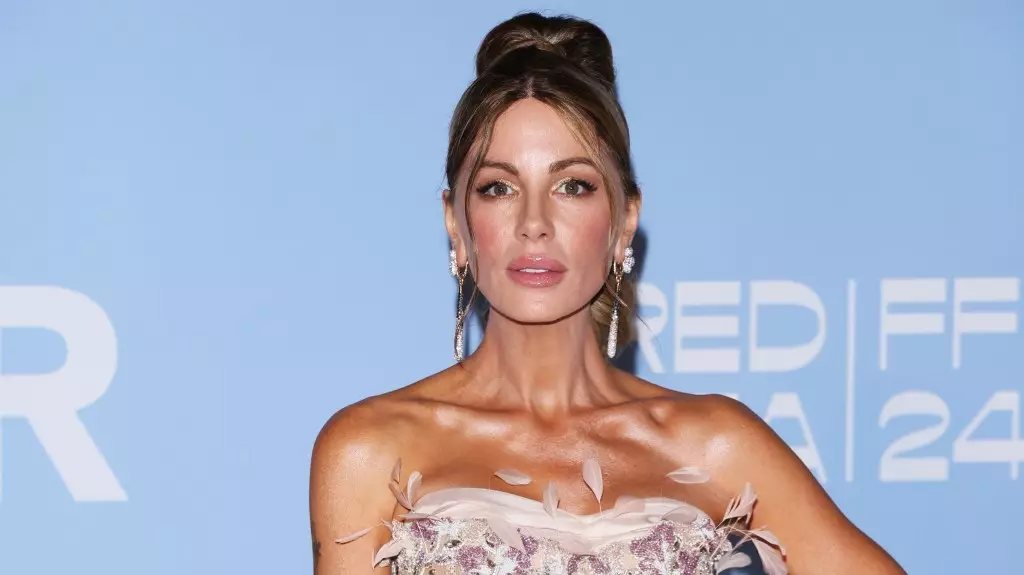In a recent Instagram video, actress Kate Beckinsale courageously brought to light her harrowing experiences of systemic sexism within the Hollywood film industry. Her reflections were set against the backdrop of the recent Blake Lively-Justin Baldoni controversy that has reignited conversations about misogyny in the industry. This moment serves not only as a personal revelation but also as a broader indictment of a culture that consistently permits and perpetuates harassment and assault, particularly against women in the film industry.
Beckinsale’s brave disclosure echoes the sentiments of many women, asserting that there exists a powerful machine designed to silence those who dare to voice their experiences of mistreatment. In under five minutes, Beckinsale shared personal anecdotes revealing the toxicity she encountered, drawing attention to the distressing reality many female professionals face when they decide to speak up. This culture of fear and marginalization is woven into the very fabric of the entertainment world, silencing victims through various means of retaliation.
Among her revelations, Beckinsale disclosed an assault she endured at the tender age of 18 while on set, showcasing a persistent pattern of vulnerability and objectification. Each chilling account she shared painted a vivid picture of a holistic environment hostile toward women, where even female colleagues failed to offer the support one would expect. Her poignant remark about being dismissed by two female peers highlights the need for solidarity among women, an essential pillar that often crumbles under pressure and competition in the cutthroat entertainment landscape.
The actress recounted the incredibility of being ridiculed and called derogatory names merely for holding a male co-star accountable for his reckless behavior. This incident exemplifies a deeply ingrained culture where women face retaliation for asserting themselves. The response she received—being handed a bike to pass the time amid production delays—serves as a metaphor for the trivialization of women’s concerns and feelings in a male-dominated industry.
Physical Demands and Psychological Toll
Beckinsale also shared distressing anecdotes surrounding the unrealistic beauty standards imposed upon women in Hollywood. She described being subjected to an extreme diet that resulted in the loss of her menstrual cycles, a physical manifestation of the psychological pressure she faced to conform to Hollywood’s image of beauty. In an industry that frequently celebrates superficiality over substance, the tragic irony is that the toll on mental and physical health is often overlooked.
Moreover, Beckinsale’s accounts of risky and unsafe working conditions while filming fight scenes present another alarming dimension of her experience. The thrill some male colleagues derive from performing stunts on women showcases a grotesque form of machismo. This normalization of danger not only endangers participants but also perpetuates harmful stereotypes regarding gendered behavior and violence.
One of the most haunting aspects of Beckinsale’s narrative is her description of being gaslit after raising concerns about her treatment. The systematic ostracization—being excluded from dinners, ignored on set—paints a disturbing picture of how women are often blamed for speaking out. Such punitive measures serve to reinforce silence and inhibit open discourse about the very real issues at play.
Her deeply personal story of being coerced by her representative to engage in a photoshoot shortly after a miscarriage, while still in physical distress, exemplifies the callous nature of some within the industry. It underscores a recurrent theme in which women’s health, both physical and emotional, is disregarded for the sake of maintaining public appearances or career momentum.
A Call to Acknowledge Persistent Inequalities
Despite advancements in discussions surrounding gender equity in Hollywood, Beckinsale’s candid reflections compel a sobering evaluation of the current state of affairs. As she poignantly remarked, the narrative surrounding progress is often steeped in falsehoods. Her assertion that the climate hasn’t fundamentally improved serves as a clarion call for a more profound acknowledgment and collective action against systemic sexism that pervades the industry.
Ultimately, Kate Beckinsale’s experiences highlight an urgent need for systemic change. Her voice contributes to a growing chorus of women determined to demand accountability and create an environment in which all individuals, regardless of gender, can work free from discrimination and harassment. The road ahead is one of continued advocacy and transformation, urging a complete overhaul of an industry entrenched in antiquated norms.

